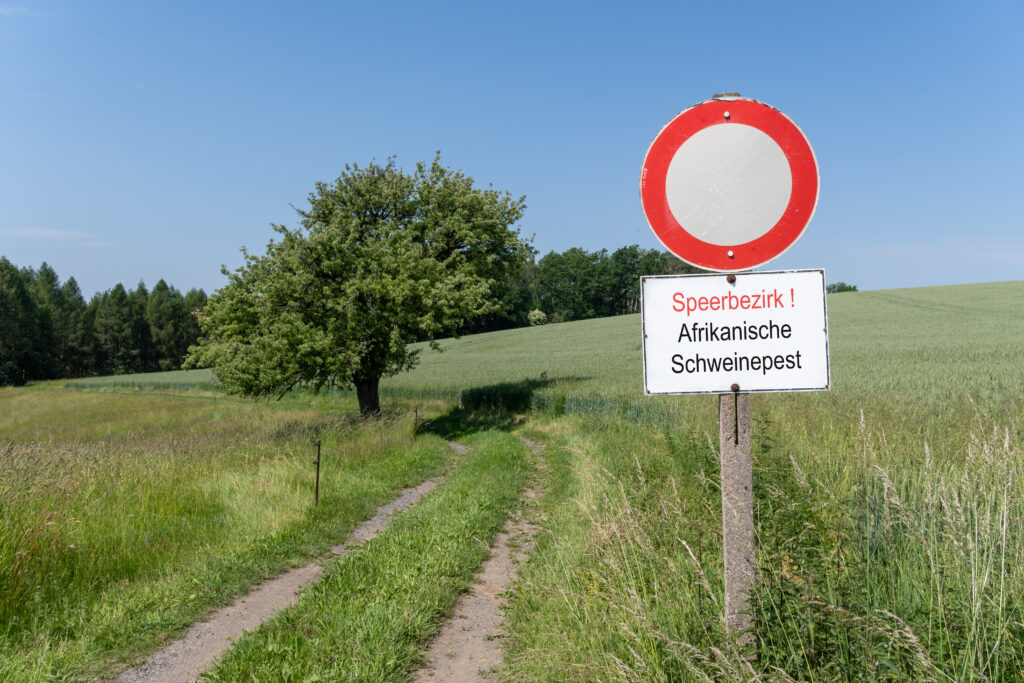African swine fever (ASF) has been detected in a domestic pig herd for the first time in the German state of Rhineland-Palatinate.
The Rhineland-Palatinate Ministry for Climate Protection, Environment, Energy and Mobility has announced that a small farm in Gerolsheim, in the Bad Dürkheim district, is affected.
A blood sample containing the suspected ASF pathogen from a dead pig was examined by the State Office of Investigation and then confirmed by the Friedrich Loeffler Institute (FLI). According to the Bad Dürkheim district, the cause of the infection is still unclear, German pig industry body ISN reports.
It does not appear to be a pig dense area. ISN reports that there are only 13 domestic pigs in a total of seven farms in the 10km restricted zone set up around the affected farm. The zone imposes ‘severe restrictions’ on the trade in pigs and pork products, and on slaughter, while slurry, manure and used bedding may not be removed from it.
Until this latest case, ASF infection in the state had been confined to wild boar since its first case earlier in the summer.
It borders the state of Hesse, where ASF struck in wild boar for the first time in that part of western Germany, near Frankfurt, not far from the country’s borders with France and Belgium, in June.
In July, the virus was discovered in domestic pigs for the first time in Hesse and there have now been eight confirmed domestic cases in the state, mainly on small farms but including one farm with more than 2,000 pigs, alongside more cases in wild boar.
Pig Progress reports that a third state in western Germany, Baden-Württemberg, has now reported a case in wild boar.




